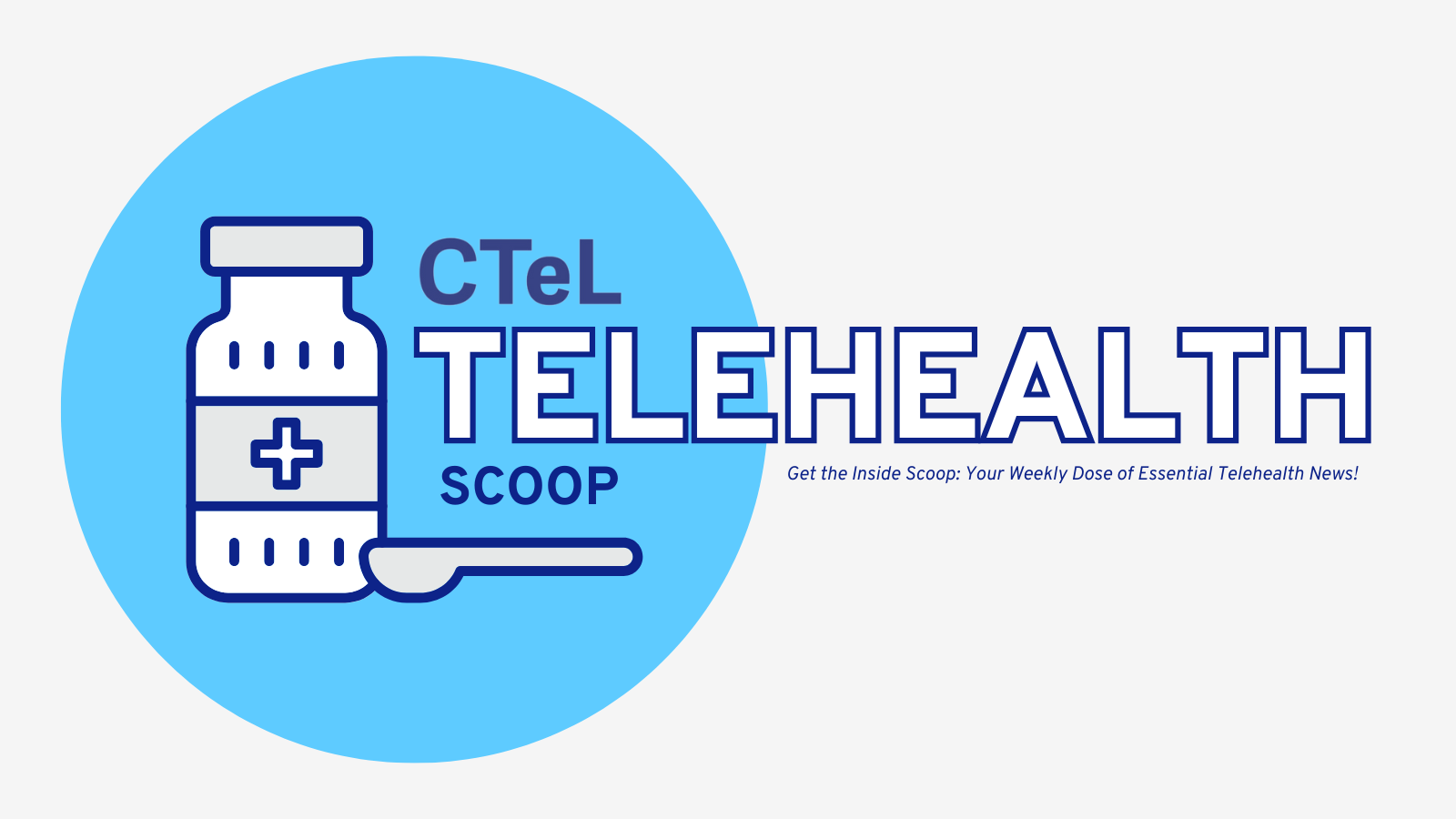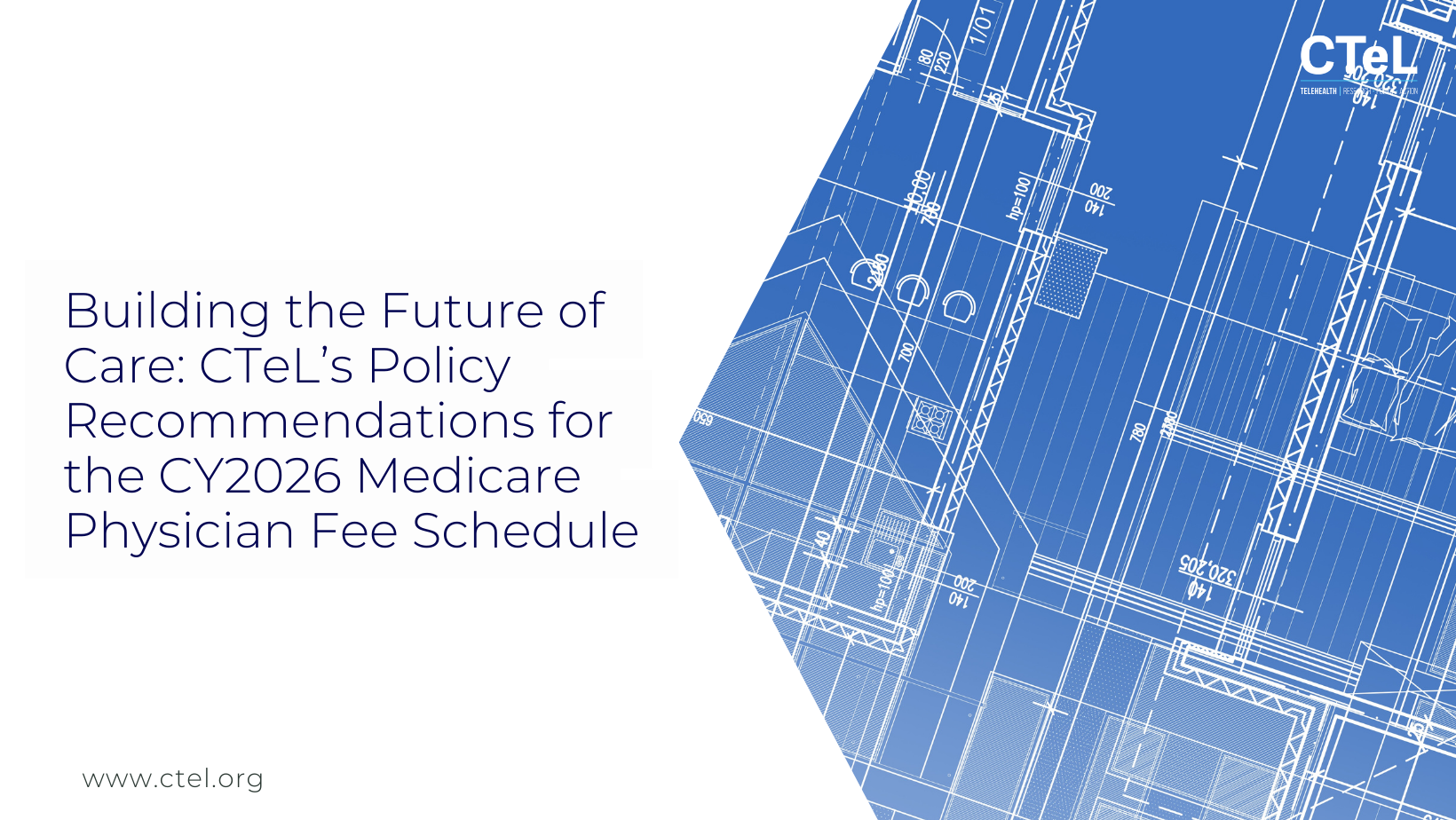
Building the Future of Care: CTeL’s Policy Recommendations for the CY2026 Medicare Physician Fee Schedule
When the Centers for Medicare & Medicaid Services (CMS) releases its annual Physician Fee Schedule (PFS), the health care industry pays attention. This cornerstone policy does more than set payment rates for physicians — it influences the very foundation of how care is delivered, what technologies are reimbursed, and how patients access services across the United States.
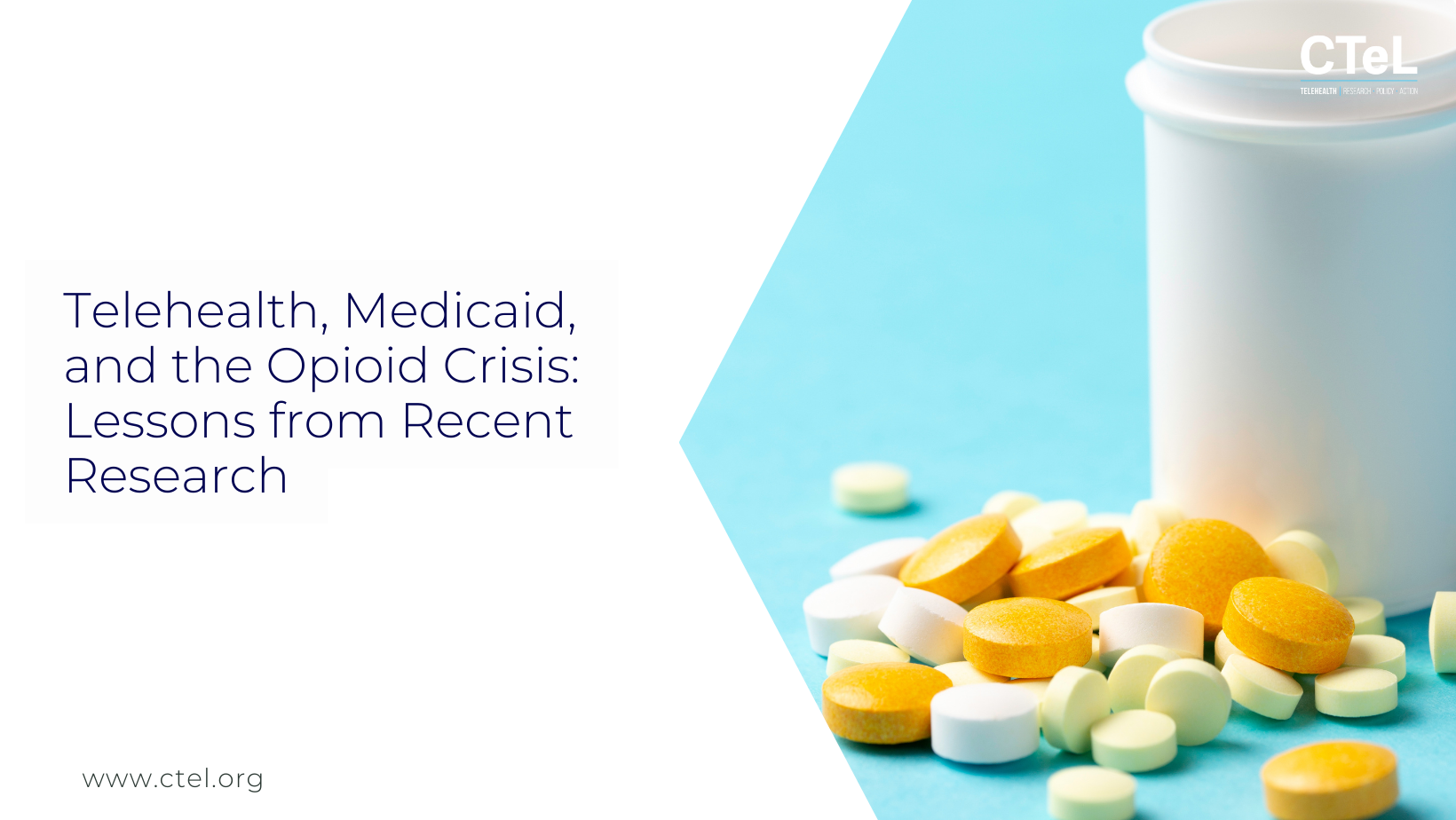
Telehealth, Medicaid, and the Opioid Crisis: Lessons from Recent Research
The recent expansion of telehealth flexibilities was heralded as a landmark achievement in the fight against the opioid crisis. The prevailing assumption was that by removing barriers to accessing buprenorphine—a cornerstone medication for opioid use disorder (MOUD)—we would see significant growth in prescribing and, ultimately, a reduction in overdose deaths. Yet emerging evidence complicates this narrative. Two recent studies, one in Health Affairs and another in the Journal of the American Medical Association (JAMA), suggest that telehealth alone is not the panacea many hoped it would be. Instead, systemic barriers continue to limit the reach of MOUD and highlight the need for more comprehensive policy strategies.
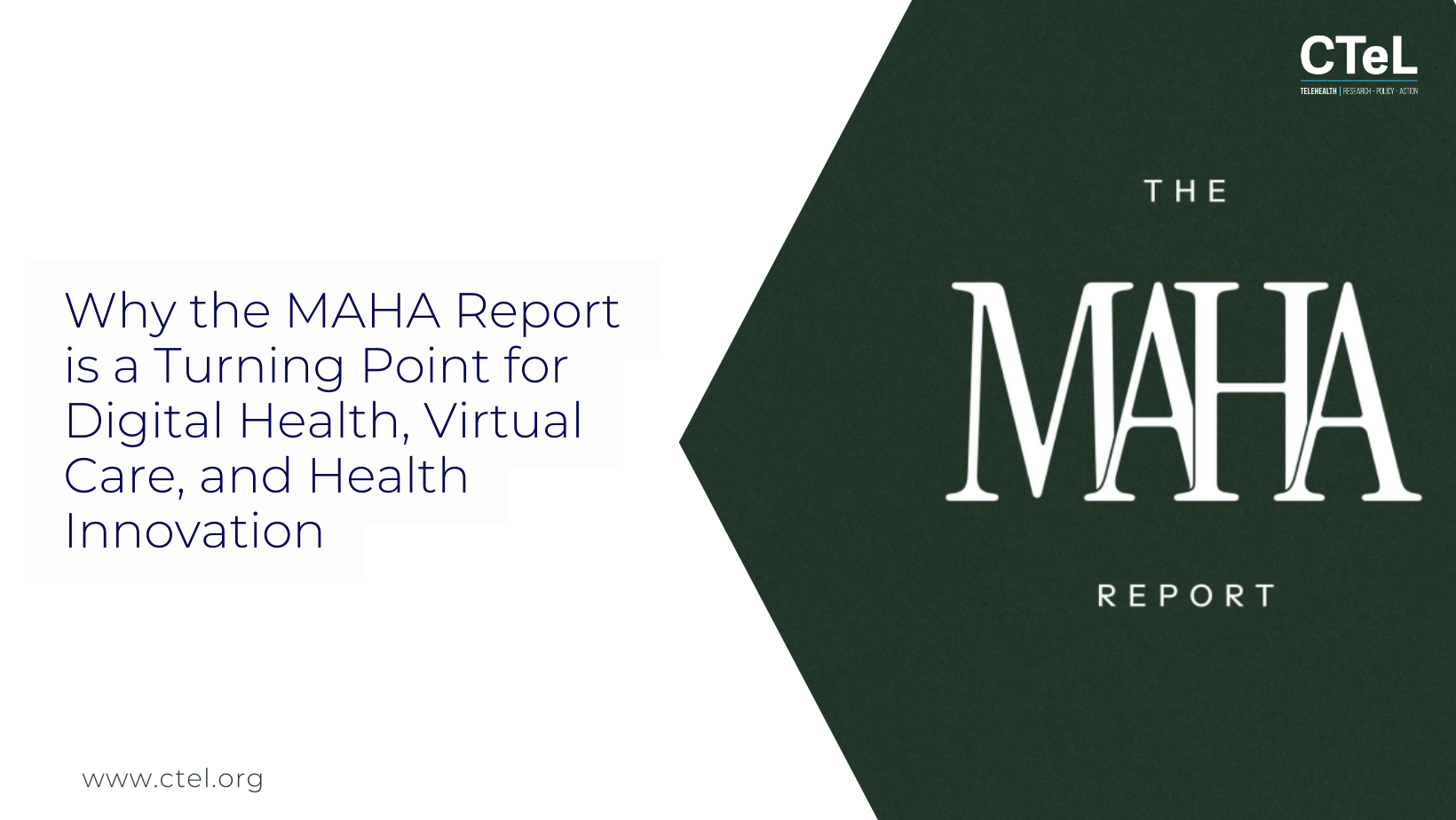
Why the MAHA Report is a Turning Point for Digital Health, Virtual Care, and Health Innovation
The White House’s Make America Healthy Again (MAHA) report, spearheaded by the MAHA Commission, is not just another federal white paper. At first glance, its mission appears narrowly defined—combatting the epidemic of childhood chronic disease. But for stakeholders in digital health, telehealth, and health innovation, the implications are much broader. The report signals a structural reframing of how health policy, healthcare delivery, and technology will intersect over the next decade.
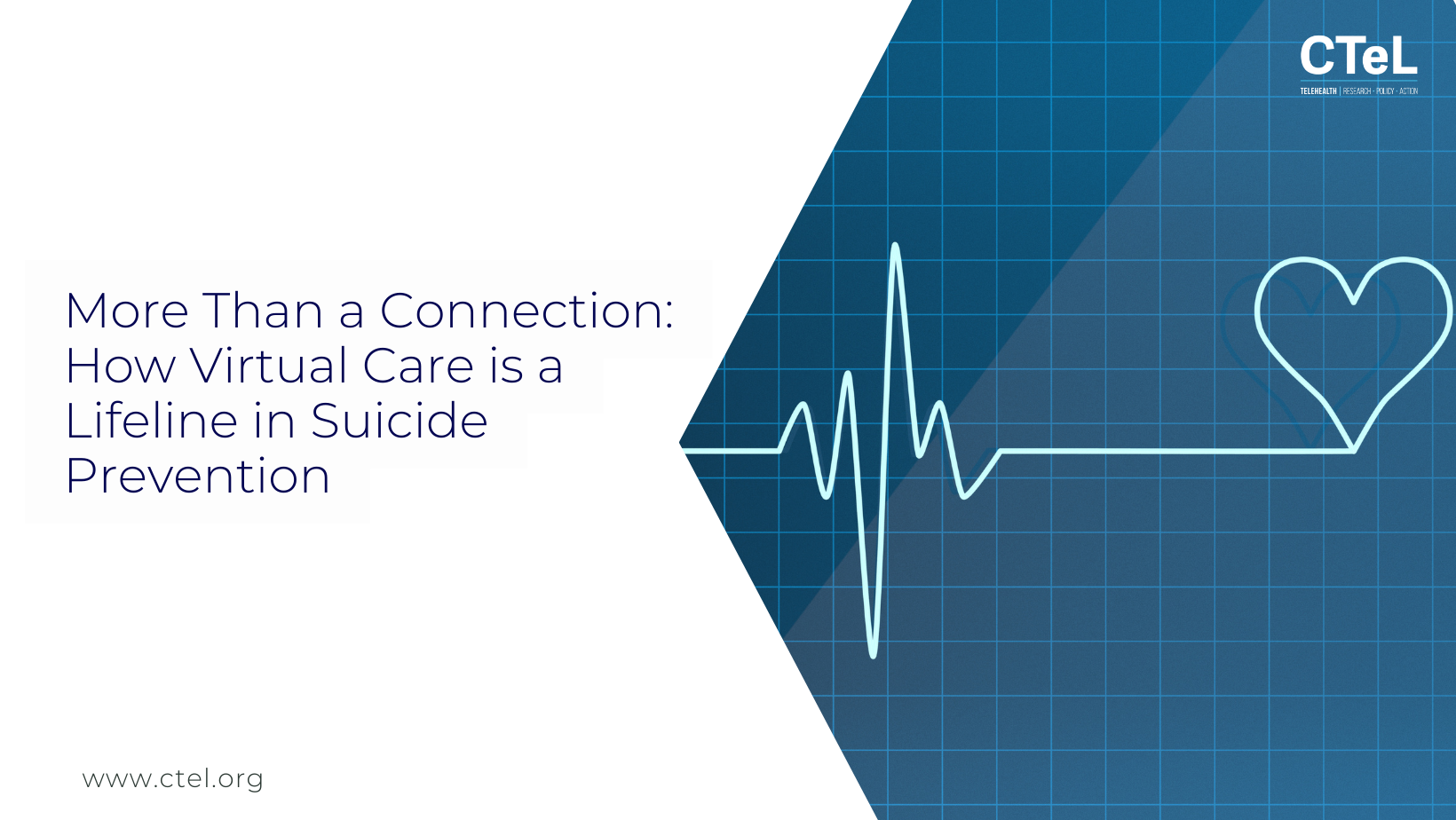
More Than a Connection: How Virtual Care is a Lifeline in Suicide Prevention
This month, we recognize National Suicide Prevention Awareness Month.. It's a time to raise awareness, share resources, and remember the lives affected by suicide. It's also a critical moment to examine the powerful tools we have at our disposal to fight this public health crisis. One of the most significant advancements in recent years is the widespread adoption of virtual mental and behavioral healthcare, a lifeline that offers hope and help in unprecedented ways.

The Data Liberation Moment: How HHS’s Crackdown on Information Blocking Will Transform Healthcare
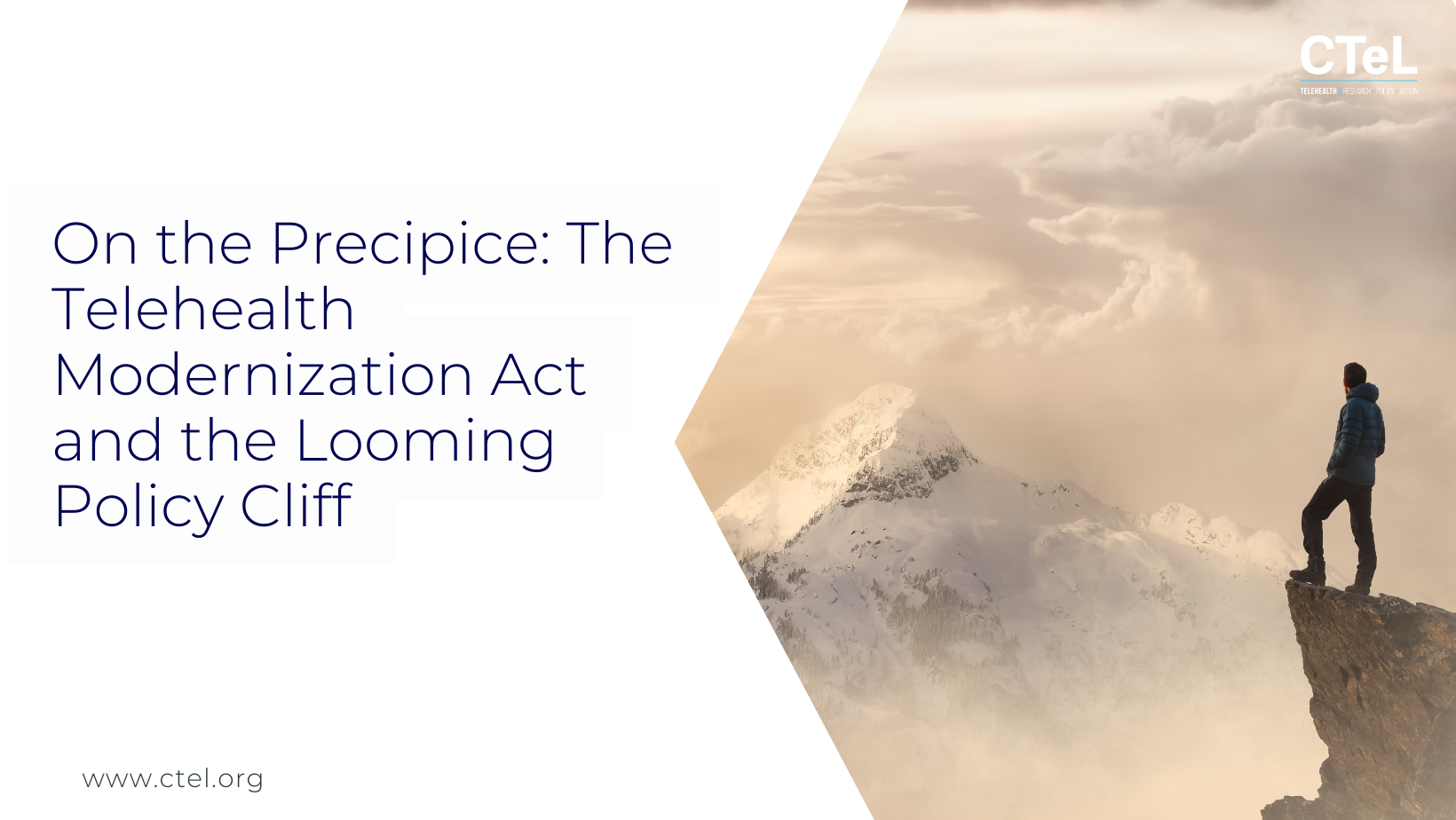
On the Precipice: The Telehealth Modernization Act and the Looming Policy Cliff
As the September 30, 2025 deadline approaches, the U.S. healthcare system faces a profound turning point. Unless Congress acts, pandemic-era telehealth flexibilities—credited with revolutionizing care access and delivery—will expire. This “policy cliff” threatens to undo years of progress, restricting patient access, straining provider capacity, and deepening health inequities.
The bipartisan Telehealth Modernization Act of 2025 (H.R. 7623 / S. 2016) offers a clear path forward. The legislation would not only preserve the gains of the last five years but also cement telehealth as a permanent fixture of U.S. healthcare delivery.
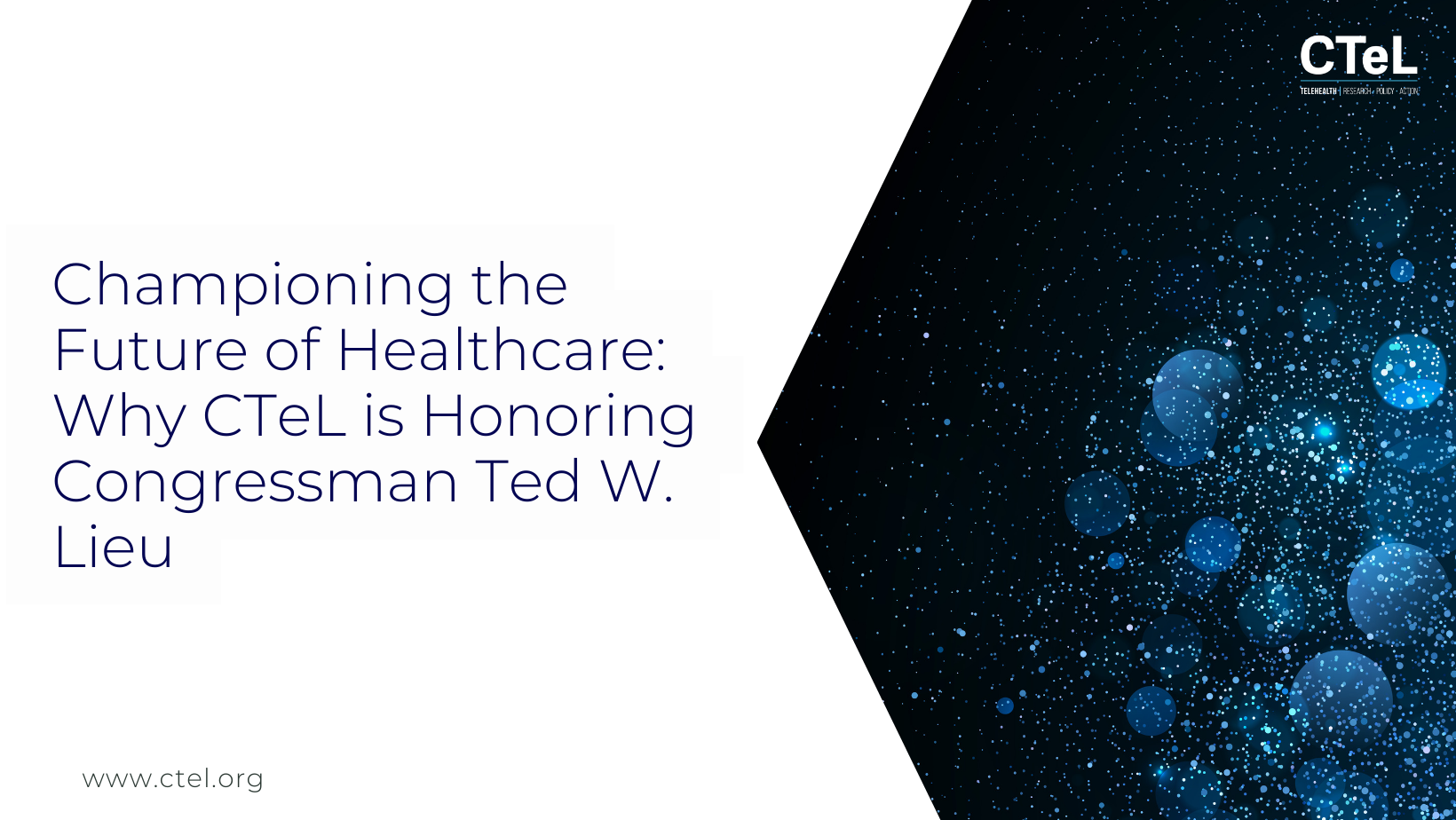
Championing the Future of Healthcare: Why CTeL is Honoring Congressman Ted W. Lieu
CTeL is thrilled to announce we will be presenting Congressman Ted W. Lieu (CA-36) with our Congressional Leadership Award at the 2025 Digital Health Tech & AI Showcase this September. This recognition is not just an award; it's a testament to the profound impact of dedicated policymakers in shaping the future of healthcare.
For years, CTeL has been at the forefront of advocating for the responsible integration of technology into healthcare. We understand that while innovation is crucial, it must be guided by thoughtful policy that prioritizes patient safety, equity, and transparency. This is where leaders like Congressman Lieu become indispensable.

CTeL Celebrates “Friend of Nursing Award”—Championing Policy Reforms to Secure the Future of Nursing
The Center for Telehealth and eHealth Law (CTeL) is proud to highlight a milestone moment: the acceptance of the Friend of Nursing Award by CTeL Executive Director Christa Natoli. Received at the 2025 Flame Forward Conference hosted by the Nightingale Education Group in Salt Lake City, this honor recognizes CTeL’s leadership, innovation, and dedicated advocacy for strengthening nursing and healthcare at a national scale.
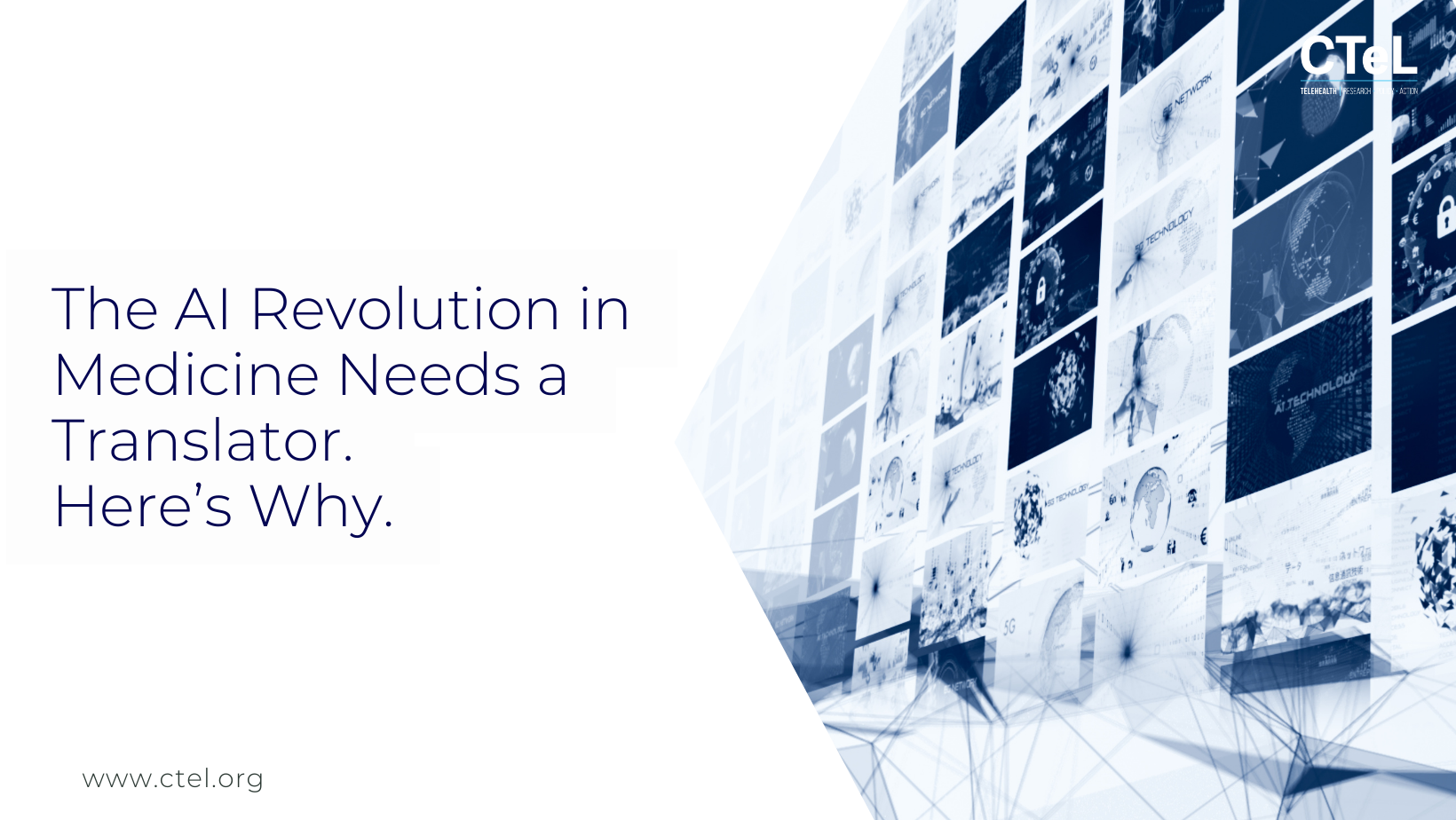
The AI Revolution in Medicine Needs a Translator. Here’s Why.
Artificial intelligence is sweeping through healthcare, promising a new era of predictive accuracy and personalized medicine. The hype is palpable. Yet, a crucial, inconvenient truth is emerging from the front lines: simply giving these powerful AI tools to doctors doesn't automatically lead to better medicine. In fact, sometimes it doesn’t help at all.
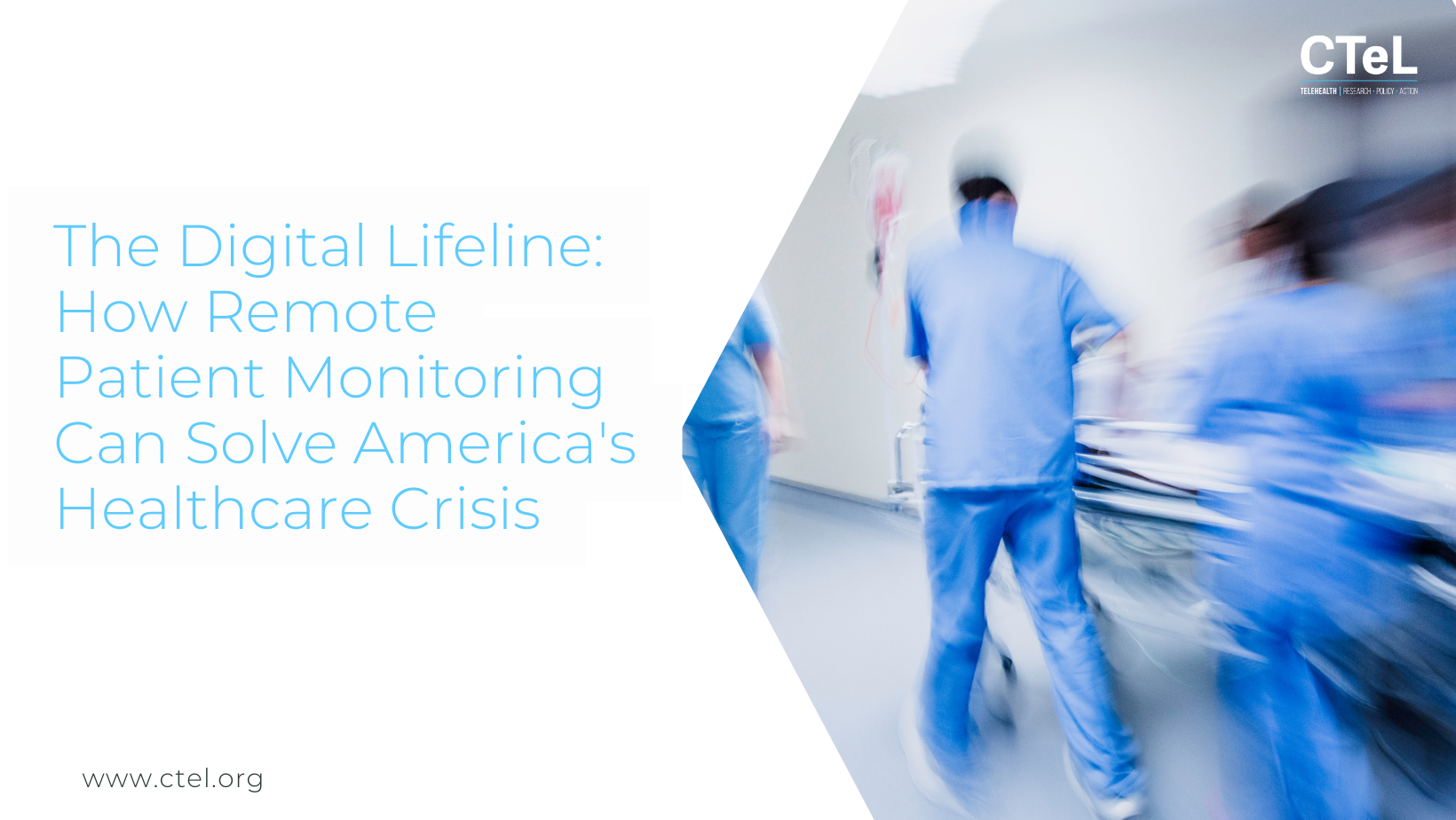
The Digital Lifeline: How Remote Patient Monitoring Can Solve America's Healthcare Crisis
The U.S. healthcare system is grappling with a perfect storm: a national shortage of physicians and nurses, the overwhelming financial burden of chronic diseases, and a strained emergency department (ED) infrastructure. These challenges converge to create a system that is often inaccessible, inefficient, and on the verge of burnout. However, a powerful, evidence-based solution is already making an impact: Remote Patient Monitoring (RPM). This technology offers a profound ability to transform healthcare delivery, alleviate burdens on the system, and expand access to life-saving care for millions.

Bridging the Gap: AI, Digital Health, and the Golden Opportunity in Geriatric Care
The demographic landscape of the United States is undergoing a monumental shift. By 2050, older adults will constitute the largest demographic group in the nation (Verghese et al., 2024). This "graying" of America presents a unique set of challenges and an unprecedented opportunity for innovation. For those in the digital health and AI space, the geriatric care market isn't just a burgeoning frontier; it's a critical area of need where thoughtful innovation can dramatically improve quality of life.
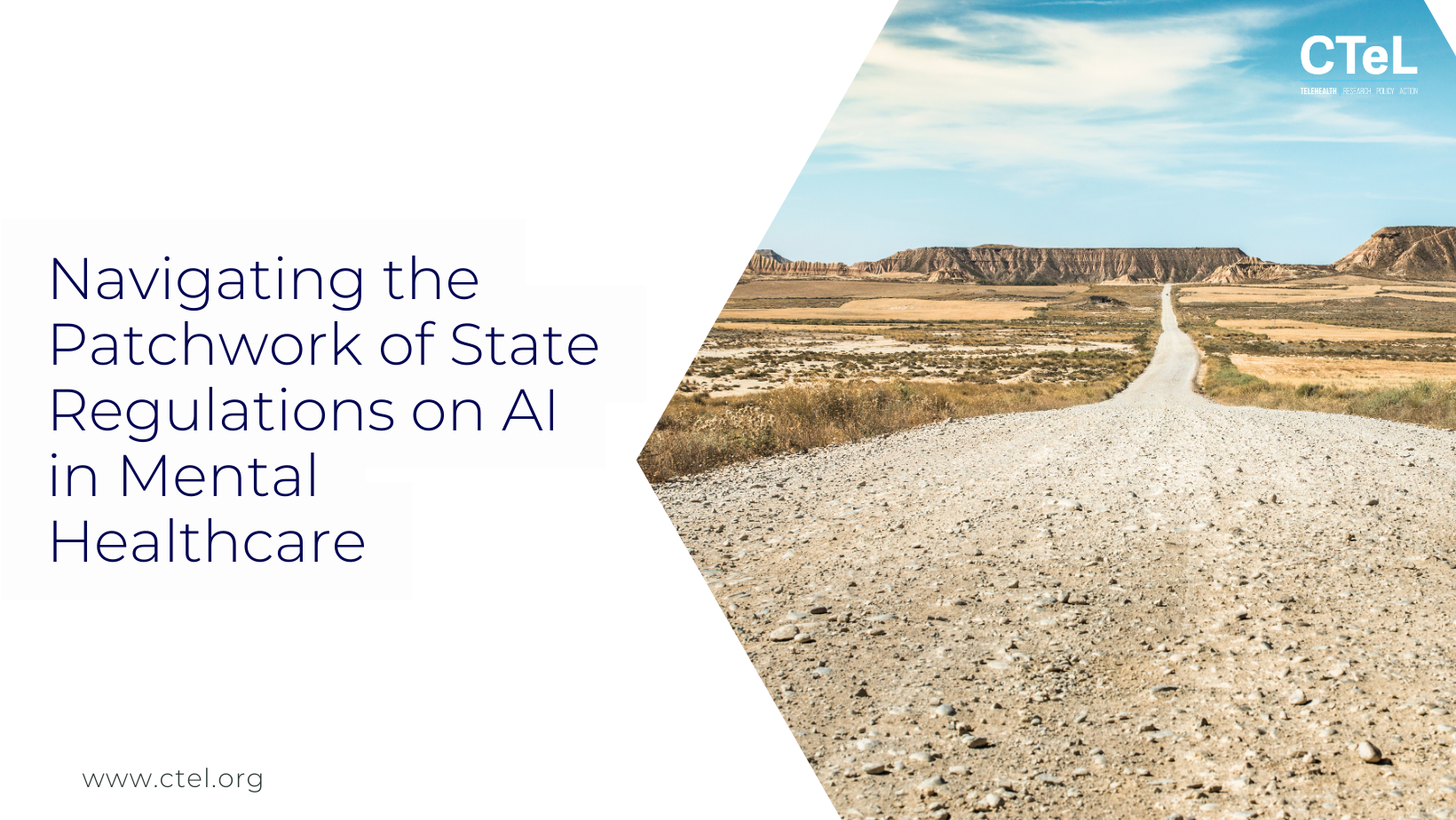
Navigating the Patchwork of State Regulations on AI in Mental Healthcare
The use of artificial intelligence in mental healthcare is exploding. From chatbots that offer a listening ear to algorithms that predict mental health crises, AI promises to expand access to care and improve treatment. But with this great promise comes great responsibility, and a pressing need for thoughtful regulation. In the absence of comprehensive federal guidance, a patchwork of state-level laws and policies is emerging, creating a complex and evolving landscape for providers, developers, and patients to navigate.
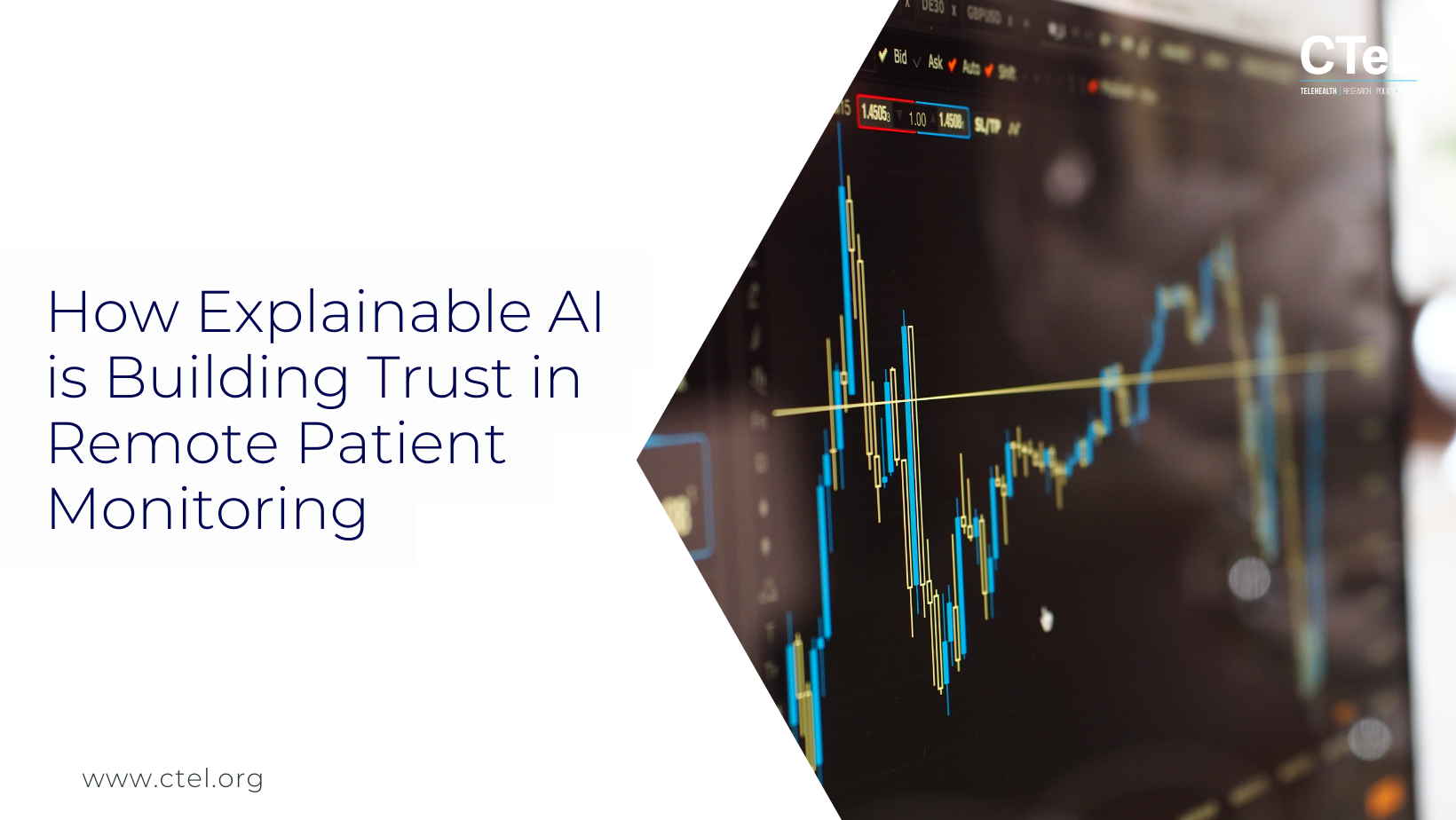
How Explainable AI is Building Trust in Remote Patient Monitoring
For leaders in the digital health and virtual care space, the promise of Remote Patient Monitoring (RPM) is undeniable: a future of continuous data, proactive interventions, and vastly improved patient outcomes. AI has amplified this promise, offering predictive power that can transform care delivery. Yet, a fundamental tension holds us back. While technology advances at lightning speed, the architecture of trust and the regulatory landscape that governs it move at a much more deliberate pace. This creates a critical challenge: the AI "black box." When patients and clinicians cannot see how an AI reaches a conclusion, it breeds mistrust, creates liability concerns, and ultimately hinders adoption.

Closing the Gap: From Telehealth Prescription to Life-Saving Medication
Telehealth has been a revolutionary force in expanding access to treatment for opioid use disorder (OUD), connecting thousands of individuals to the life-saving medication buprenorphine. Yet, a critical gap in the care continuum persists, one that undermines this progress and puts lives at risk: the pharmacy counter. Despite receiving a valid prescription from a licensed clinician, many patients face stigma and systemic barriers that prevent them from accessing their medication, transforming a promising solution into a dangerous point of failure.

Beyond the Buzzwords: Why New Interoperability Indices Are Your Blueprint for Digital Health Strategy
Interoperability. It's a foundational concept in digital health, but what does progress actually look like? The Office of the National Coordinator for Health Information Technology (ONC) recently introduced a new set of indices to measure interoperability among U.S. hospitals, moving beyond simple "yes/no" questions to a more nuanced, measurable framework. For those of us in the digital health, virtual care, and direct care delivery space, this isn't just another government report—it's a critical blueprint for understanding the market, identifying opportunities, and building a sustainable business.

The AI Frontier in Healthcare: CTeL's New AI Playbook - Your Strategic Advantage
As the landscape of healthcare continues to evolve at an unprecedented pace, the integration of Artificial Intelligence (AI) presents both remarkable opportunities and intricate challenges. Organizations across the healthcare spectrum are recognizing the transformative potential of AI to enhance diagnostics, personalize treatment plans, streamline operations, and ultimately improve patient outcomes. However, navigating the legal, ethical, and financial implications of adopting these cutting-edge technologies can feel like uncharted territory.
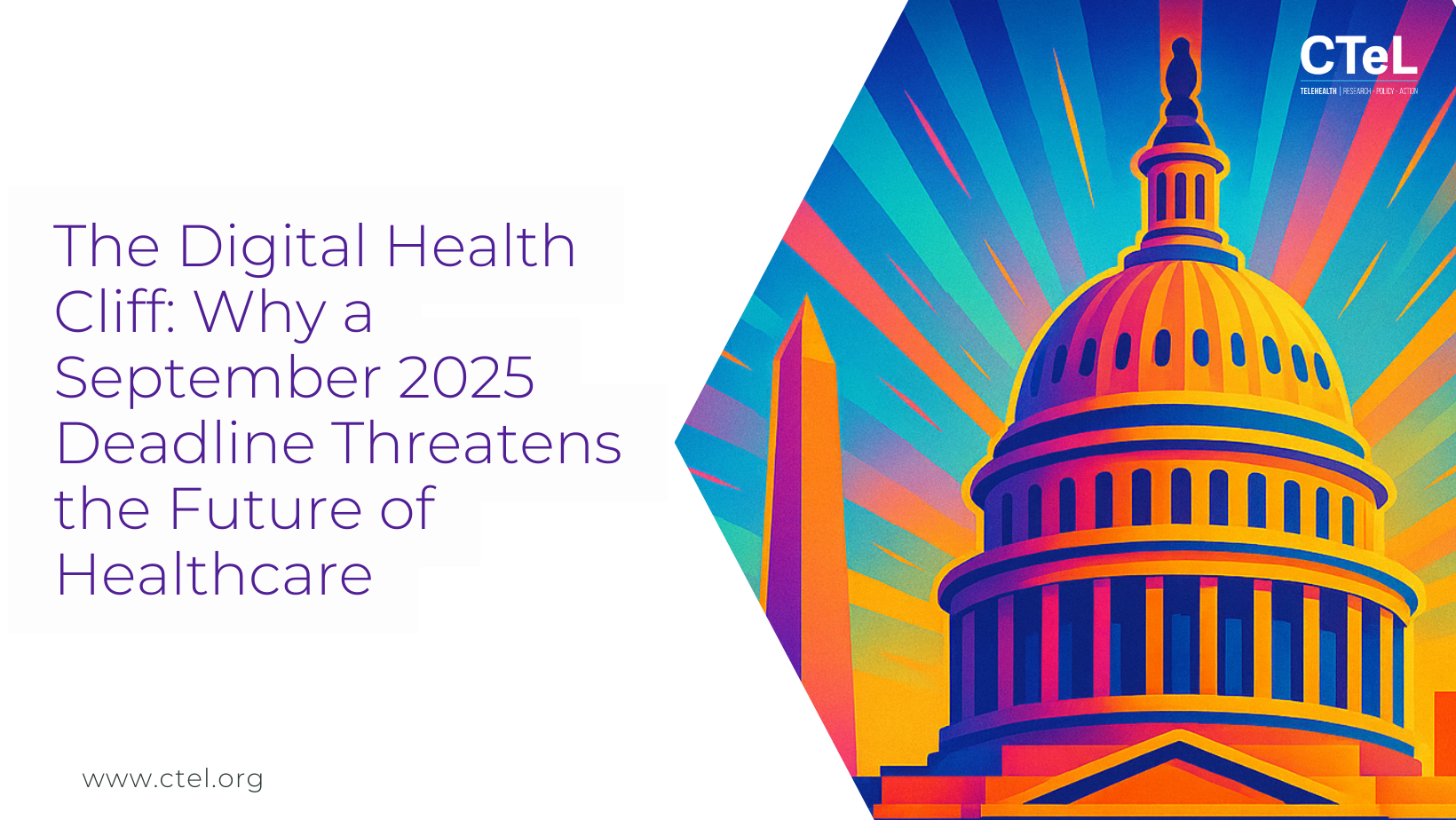
The Digital Health Cliff: Why a September 2025 Deadline Threatens the Future of Healthcare
September 30, 2025, isn't just another date on the calendar. For millions of Americans and the entire digital health industry, it’s a looming deadline that threatens to send healthcare innovation careening off a cliff.
That’s the day the critical telehealth waivers, which have enabled a revolution in how we access and deliver care, are set to expire. Without swift congressional action, the progress we've made in expanding virtual care—from rural patients seeing specialists to mental health services being more accessible than ever—could be rolled back, disrupting care for millions and stifling the very innovations that have made it possible.
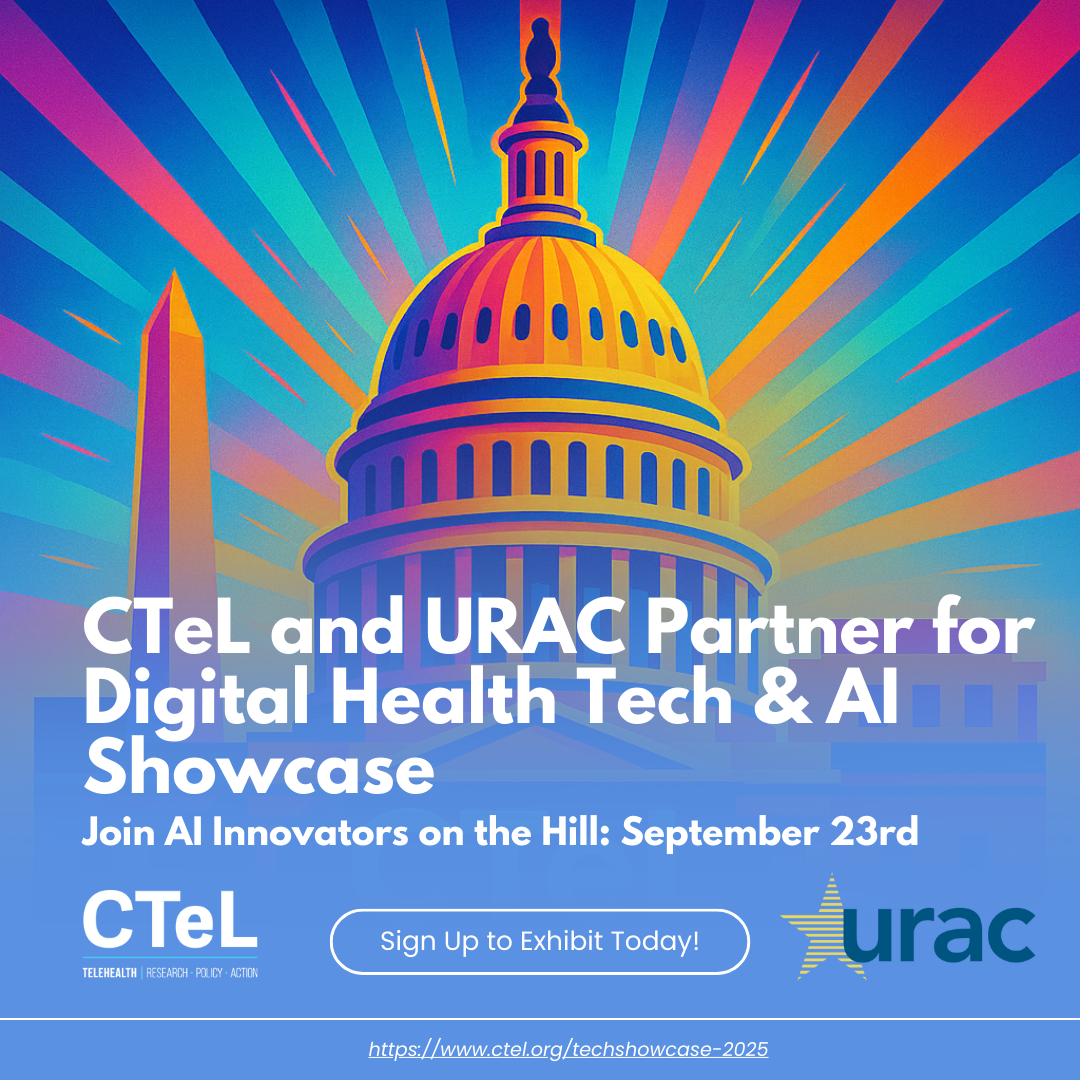
Shaping the Future of Healthcare: CTeL and URAC Partner for Digital Health Tech & AI Showcase
The healthcare landscape is evolving at an unprecedented pace, driven by groundbreaking advancements in digital technology and artificial intelligence. To navigate this transformative era responsibly and effectively, collaboration and forward-thinking policy are paramount. That's why we at the Center for Telehealth and eHealth Law (CTeL) are thrilled to announce our partnership with URAC, a nationally recognized leader in healthcare accreditation, to present the inaugural Digital Health Tech & AI Showcase on Capitol Hill on September 23, 2025.
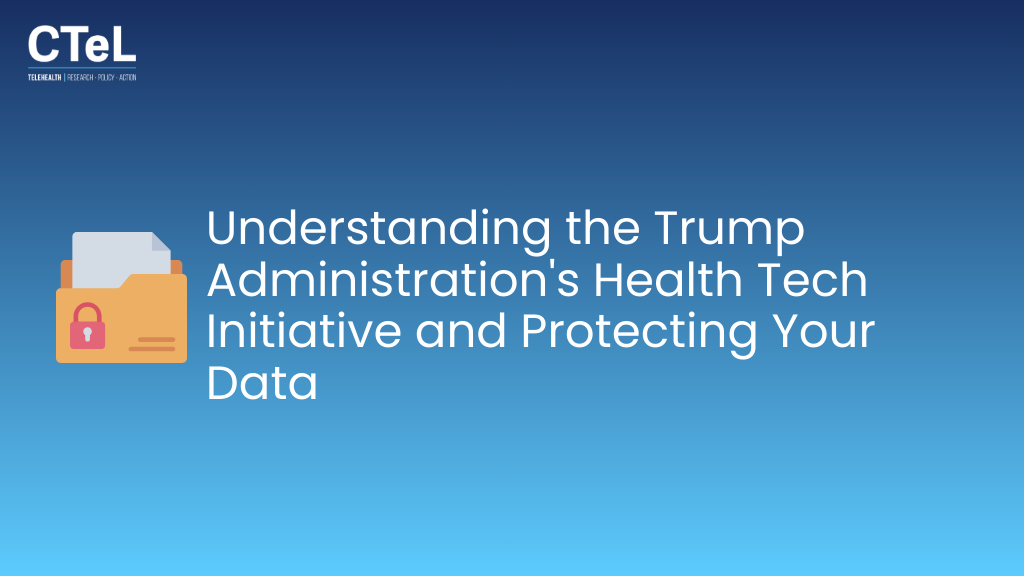
Understanding the Trump Administration's Health Tech Initiative and Protecting Your Data
The recent announcement by the Trump administration to launch a new private health tracking system in collaboration with major technology companies and healthcare giants marks a significant stride towards a more interconnected digital health ecosystem. While proponents champion this initiative as a critical upgrade for America's healthcare networks, promising easier access to health records and enhanced wellness monitoring, it simultaneously ushers in a new era of complex considerations, particularly concerning data privacy and security. Those who utilize digital health technology, from individual consumers to large health systems, must understand the multifaceted implications to navigate this evolving landscape effectively and protect their sensitive health information.
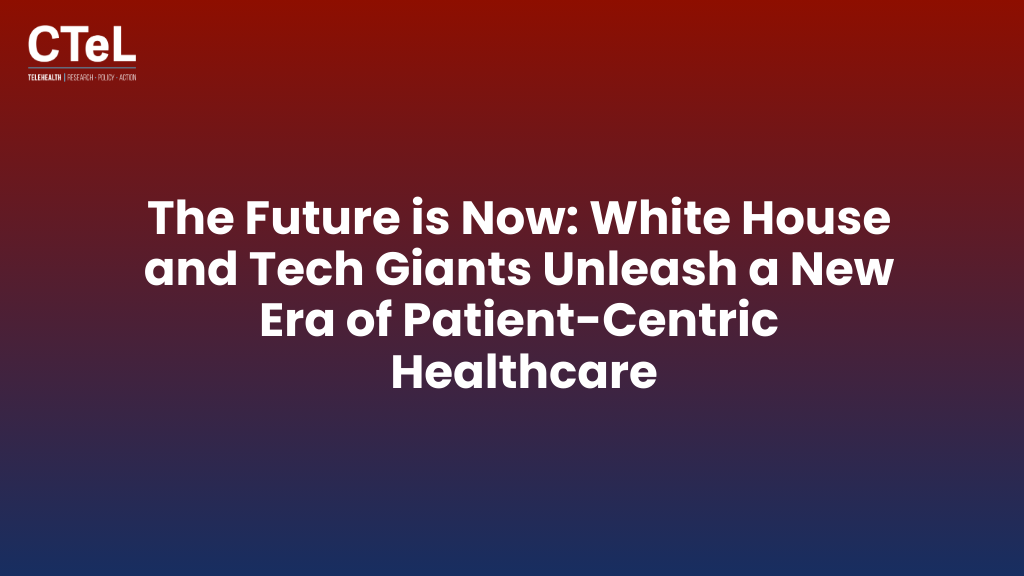
The Future is Now: White House and Tech Giants Unleash a New Era of Patient-Centric Healthcare
A landmark announcement from the White House signals a seismic shift in the digital health landscape. The Trump Administration, in a "Make Health Tech Great Again" event, has secured commitments from tech titans like Amazon, Apple, Google, and major healthcare players to build a more interconnected, intelligent, and personalized healthcare system. For those in the digital health, telehealth, and hospital sectors, this isn't just another government initiative. It's a fundamental reshaping of the operational and technological rails upon which healthcare will run.
Subscribe to the Telehealth Scoop!
Get the latest telehealth policy news you need to know, right to your inbox. Stay up-to-date on all the latest CTeL happenings, events, actions, and more!

